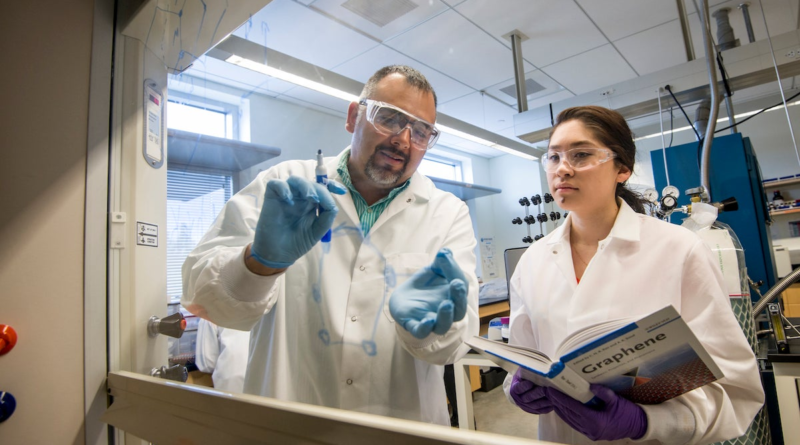Boise State to advance semiconductor tech with National Science Foundation Engine development award – uat vcastapi
Boise State University is part of a group of key academic and industry partners in the Pacific Northwest poised to advance semiconductor technology for the region, and the world, with a $1 million award from the U.S. National Science Foundation’s Regional Innovation Engines program.
The grant’s primary recipient is Oregon State University and academic partners include the University of Washington and Boise State. Industry, laboratory and community partners include the Oregon Business Council, the City of Hillsboro, Intel, Micron, Meta, American Semiconductor, Pacific Northwest National Laboratories, Idaho National Laboratories. These organizations will develop a regional innovation ecosystem that expands discovery and entrepreneurship for the semiconductor industry. Additional partnerships with academic institutions and nonprofit organizations will also advance pathways for careers in semiconductor manufacturing.
Boise State lead Dave Estrada, the associate director for the Center of Advanced Energy Studies and an associate professor in the Micron School of Materials Science and Engineering says this award is an important first step to creating a network to advance semiconductor technology, and to be ready to submit for phase two of the award, which would provide $160 million dollars to further semiconductor research and its ecosystem.
“One of the greatest challenges facing the information and communications technology ecosystem is the amount of energy required to process and store the tremendous amounts of data we produce,” said Estrada, who also serves as the site director of Boise State’s NSF Center for Atomically Thin and Multifunctional Coatings. “The emerging Pacific Northwest Semiconductor Ecosystem is very well positioned to solve such semiconductor related challenges, and help reap the economic rewards for Idaho, Oregon and Washington.”
To further develop this ecosystem, Estrada says a series of stakeholder workshops across the region will provide ample opportunities to determine key trends, needs and goals of each institution as they work to advance these technologies together. In addition to establishing means to identify and fill workforce needs, the network will also focus on growing areas of research development such as artificial intelligence and machine learning, semiconductor materials, nanolithography, memory and more.
Launched by NSF’s new Directorate for Technology, Innovation and Partnerships and authorized by the CHIPS and Science Act of 2022, the U.S. National Science Foundation’s Regional Innovation Engines program uniquely harnesses the nation’s science and technology research and development enterprise and regional-level resources. NSF Engines aspire to catalyze robust partnerships to positively impact regional economies, accelerate technology development, address societal challenges, advance national competitiveness and create local, high-wage jobs.
This project includes federal, regional and state government bodies, private industry and public learning institutions to align to the White House Office of Science and Technology’s National Strategy for Advanced Manufacturing.
© 2024 All Rights Reserved Boise State University.
